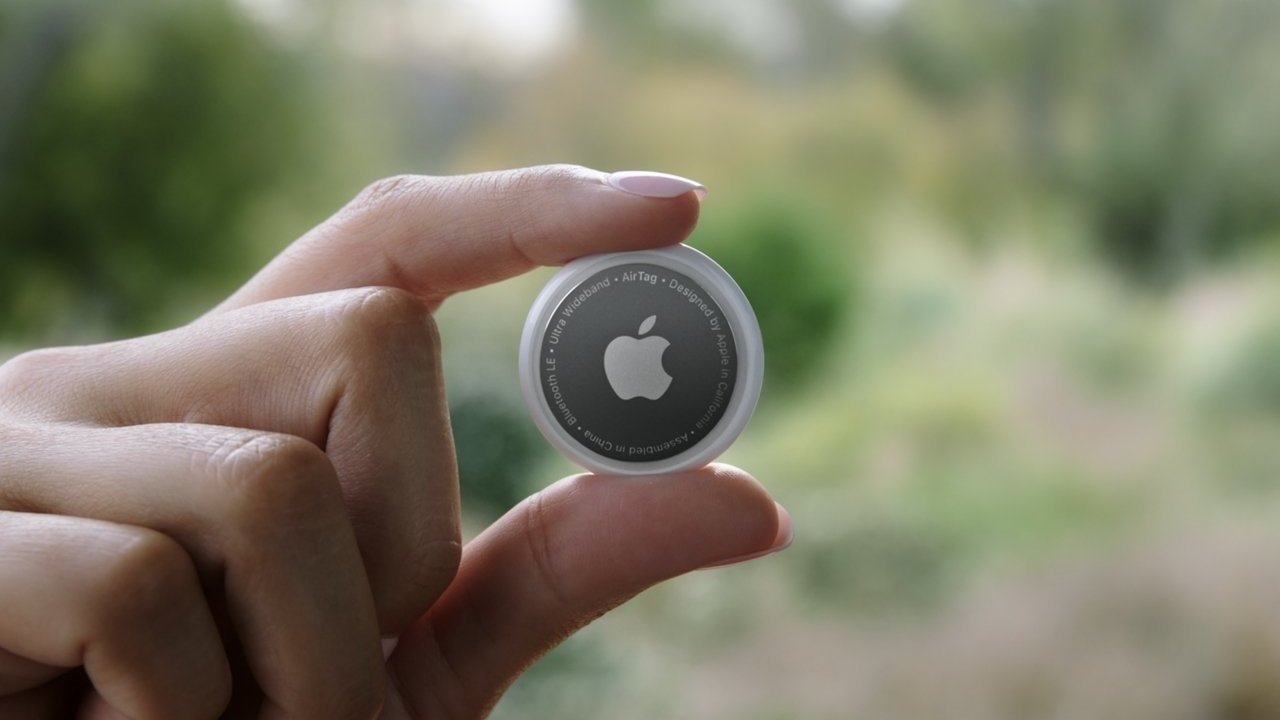Apple and Google have finally implemented their industry specification for detecting AirTags and other trackers hidden on a person, to help minimize the instances of stalking.
Initially announced in May 2023, the industry standard between Apple and Google is titled "Detecting Unwanted Location Trackers." After a year of waiting, it's finally becoming a reality on consumer devices.
The new standard will alert users on iOS and Android if a Bluetooth tracking device owned by someone else is being used to track them. Users will get new alerts on their smartphones if an unknown Bluetooth tracking device is found to be moving with the user over time, regardless of platform.
If someone else's AirTag, Find My accessory, or other compatible Bluetooth tracker is detected, but not attached to an item the user is borrowing or otherwise knows about, they can find out more. An iPhone is able to view the tracker's identifier, play a sound on the tracker to locate it, and see instructions on how to disable it.
While Apple hardware like AirTag will support the system, more will be supporting it in the future. Manufacturers including Chipolo, eufy, Jio, Motorola, and Pebblebee have pledged to make future tags they produce compatible with the new system.
Apple is implementing the new feature as part of iOS 17.5. Google will be bringing the same functionality to Android devices running Android 6.0 or later.
The specification is still not finalized, and will likely change in the future. Apple and Google intend to continue working with the Internet Engineering Task Force via the Detecting Unwanted Location Trackers working group to develop an official standard.
 Malcolm Owen
Malcolm Owen








 Christine McKee
Christine McKee
 Marko Zivkovic
Marko Zivkovic
 Mike Wuerthele
Mike Wuerthele

 Amber Neely
Amber Neely
 Sponsored Content
Sponsored Content
 Wesley Hilliard
Wesley Hilliard










10 Comments
This blows, even if they’re not meant for it, most people use these as theft protection
I also agree. It would be great if you could operate an AirTag for a set number of hours accompanied by your phone to enable it to be used for Theft detection. This could be see it at a long enough interval to prove that you own the device and where it’s placed.
How exactly do you commenters think that they can be used as they protection where the thief can have possession of the device without being informed -and- also keep these from being used by stalkers? I don't see how, and I'm guessing Apple doesn't either (not to mention the issue of liability of you tracking down stolen items) which is probably why Apple has never marketed them as "help me get my stolen shit back" devices.
If you really want an anti-theft/pro-stalking device there are countless other products to choose from.
I agree that it is basically impossible to fulfil both needs. As with most theft deterrents it's not about making it impossible for a thief to do something about an item being tracked, but to make it sufficiently more hassle than an alternative item. So if, for example, you put an AirTag on your bike, it might not be about the thief never knowing the bike is tracked, but to make it sufficiently harder to remove/disable the AirTag on bike. The vast majority of thefts are opportunity thefts and so in that sense it might even be better for the thief to KNOW the bike has an AirTag on it, so the thief might move on to an easier target. Sadly, that is how most theft protection works - you can never make it impossible, so just make it harder than most of the others. And thus continues the never ending arms race..